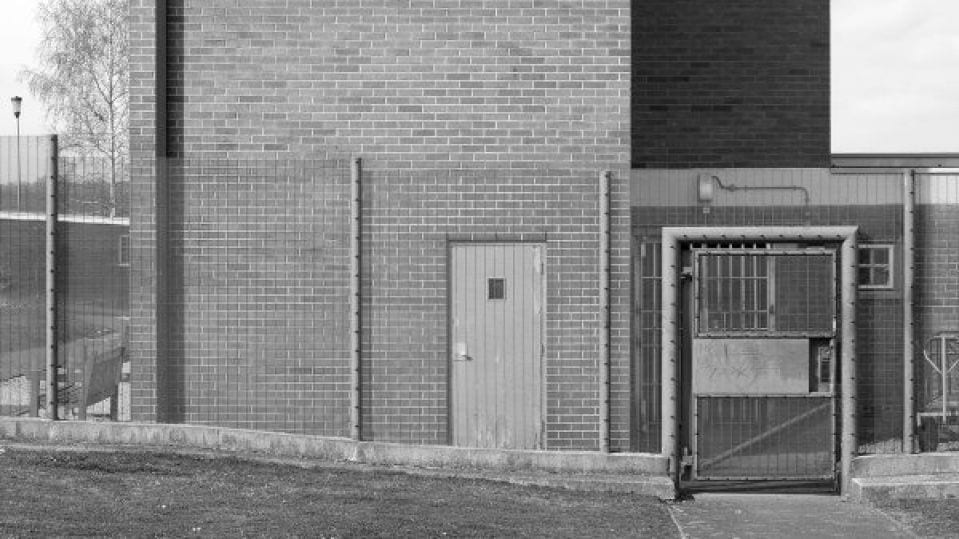Whilst many aspects of society have changed in recent centuries to reflect increasingly progressive attitudes, the phenomenon of punitive imprisonment as a solution to criminality has remained curiously intact. Relatively little has changed in our fundamental approach to the problem, only a massive systematisation of the existing solution resulting in such phenomena as the prison industrial complex in America, and a prison system in the UK that is increasingly drawing attention in the media. “The current high level of criminal re-offending signifies that our penal system as a whole is not working,” says Jonathan Watkins, director of Ikon gallery, Birmingham, where Edmund Clark’s In place of Hate is on show this December.
The exhibition is the product of a residency programme between Ikon and Europe’s only wholly therapeutic prison environment, HMP Grendon in Aylesbury. Established in 1962, the prison demands that inmates accept responsibility for their offence, and in turn allows them a degree of control over the day-to-day running of their lives while having them commit to intensive group therapy and a democratic decision-making process. The approach has resulted in a marked decrease in recidivism upon release, as well as less violence and disruption within the prison.
Having previously engaged with subjects including Guantanamo Bay, the CIA secret prison program and the detention of terrorism suspects in England on control orders, Clarke is a fitting choice for this residency. The immersive resulting exhibition – combining photography, video and sound with performance and installation – constitutes his artistic response to three years spent at Grendon working with prisoners, officers and therapeutic staff, immersing himself in their routines and community.
Because of the nature of the institution, and the necessity of concealing both the identities of those inside, and the infrastructural details of the facility, Clark’s response takes a sidelong view of his subject, approaching themes of visibility, representation, trauma and self-image. Whilst in a sense engaging directly with the individuals inside, the show therefore also considers the fundamentally important question of how the world outside the walls views those people within them. As Michel Foucault pointed out, the power imbalance between imprisoner and imprisoned is often a function of visibility, and no assessment of the penal system – artistic or otherwise – can come close to completion without recognising that how we see prisoners, and how they see themselves, is of utmost importance.
Ned Carter Miles
Edmund Clark’s In Place of Hate opens at Ikon gallery on 6 December. For more information: www.ikon-gallery.org
Credits:
1. Edmund Clark, HMP Grendon (2016) © Edmund Clark.
